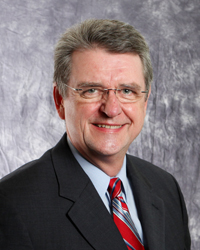A new report passed by AMA delegates draws ethical boundaries around the use of industry funding for medical education, stopping well short of the all-out ban seen in some previous versions.
The report, approved this week by the AMA’s Council on Ethical and Judicial Affairs (CEJA), advises physicians who participate in CME—either as speakers, content developers or faculty—to “strive to avoid” financial ties with industry, where possible. The report recognizes the value of support while blocking any attempt for influence.
“Crafting ethical guidance to accomplish this has been a long process, but we are confident that the policy adopted today helps to preserve the independence and integrity of continuing medical education,” AMA board member Carl Sirio, MD, said in a statement.
Similar CEJA proposals came up for votes in 2008, twice in 2009, and again last year. Each time they were met with strong opposition from the voting blocks within the AMA’s House of Delegates, including primary care physicians, state societies and specialty societies.
The fifth version retreats from previous calls for the elimination of commercial sponsorship. And where previous reports focused on the obligations of the CME provider, this one places the moral onus on physician presenters to disclose to learners their financial interests in the topic they are speaking about.
“It’s a more detailed explanation of both current guidelines for organizations and a clear definition for individuals,” said Roland Goertz, MD, president of the American Academy of Family Physicians (AAFP), which testified in support of CEJA’s proposal. “One point we made is that without the CEJA report in place, there would still be a gray area as far as guidelines for individual physicians to follow.”
According to Dr. Goertz, “a number of individuals wanted to refer [the report] back [to CEJA] because they felt it still was much too biased, that all or any type of support was still bad.” In the end, moderate members formed a compromise that protects patients while preserving the ability of organizations to collaboratively work. “The voice of that middle ground is what won out.”
The Alliance for CME, which represents accredited providers of certified CME, opposed the report for different reasons. “To the extent that withdrawal of commercial support reduces access, innovation or quality, we’re concerned,” said George Mejicano, MD, Alliance president.
Might grantors reduce support in light of the report? According to Maureen Doyle-Scharff, senior director, team lead, in Pfizer’s medical education group, “While we don’t expect there to be any significant changes in the way commercial supportis requested, offered or managed moving forward, these new ethical guidelines should help to encourage other stakeholders (academia, government, payers and health systems) to assume a greater responsibility in the financial support of CME. This will be good for CME, healthcare professionals and patients.”
She added, “Pfizer is a strong advocate of balanced funding for CME, believing that industry should be but one source of overall support.” The CEJA recommendations, she said, “reinforce the current system of checks and balances in place and are consistent with existing guidelines, including the 2005 Accreditation Council for CME (ACCME) Standards for Commercial Support, and the FDA Guidance on CME and work.”
Pamela Mason, director of the medical education grants office at AstraZeneca, concurred, saying, “I do not expect that the CEJA recommendations will have a negative impact on industry funding of independent medical education…This is an important statement by CEJA and goes to the heart of why industry supports independent medical education.”
The Alliance testified against passage because the proposed CEJA recommendations are not supported by objective data published in the peer-reviewed literature, and because “current processes used by accredited providers of continuing education in the health professions safeguard the delivery of unbiased education that promotes evidence based medicine and improves patient safety,” read a statement issued after the vote.
Dr. Mejicano also expressed concern for how accrediting bodies like the ACCME and the AMA may respond to the CEJA report.
It remains to be seen whether AMA will alter its Code of Medical Ethics or its PRA (Physicians Recognition Award) Booklet, or if ACCME will tweak its Standards for Commercial Support, any of which could lead to changes in CME practice. “It is unclear what the ramifications in actual practice will be,” Dr. Mejicano said.
“We are currently reviewing the CEJA Recommendations and the Board of Directors will be deciding on any next steps,” wrote Murray Kopelow, MD, chief executive of the ACCME, in an e-mail.
At the AAFP, which is both a credit system and producer of educational activities, any change will be minimal. “We are already dealing with the rules,” said Dr. Goertz.
Even in the absence of any changes by accreditors, the policy could begin to affect the available pool of qualified personnel, especially if accredited providers start to select speakers, authors and planners who have no relationships before others with ties to medical device or drug companies.
One ramification of the CEJA report could be positive: if it begins to refocus attention away from the debate over commercial support and on using education as a lever to improve healthcare.
“The AMA delegates’ adoption of the CEJA report does not mean an end to commercial support of CME,” said Tom Sullivan, president of med-ed provider Rockpointe, who blogged about the passage at policymed.com. He said it reflects an “alignment” of AMA policy on CME with that of the ACCME, HHS Office of Inspector General (OIG), and the PhRMA and AdvaMed Code of Ethics. “Commercial support of CME will still remain a valuable resource for CME providers to help keep physicians up-to-date on the latest breakthroughs and treatments.”








